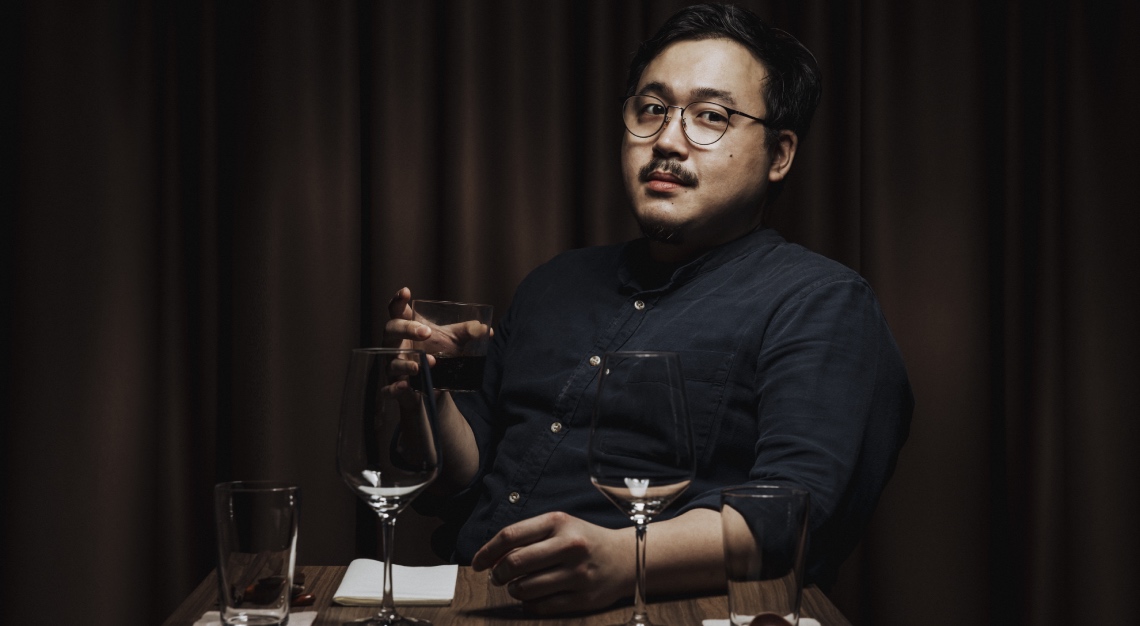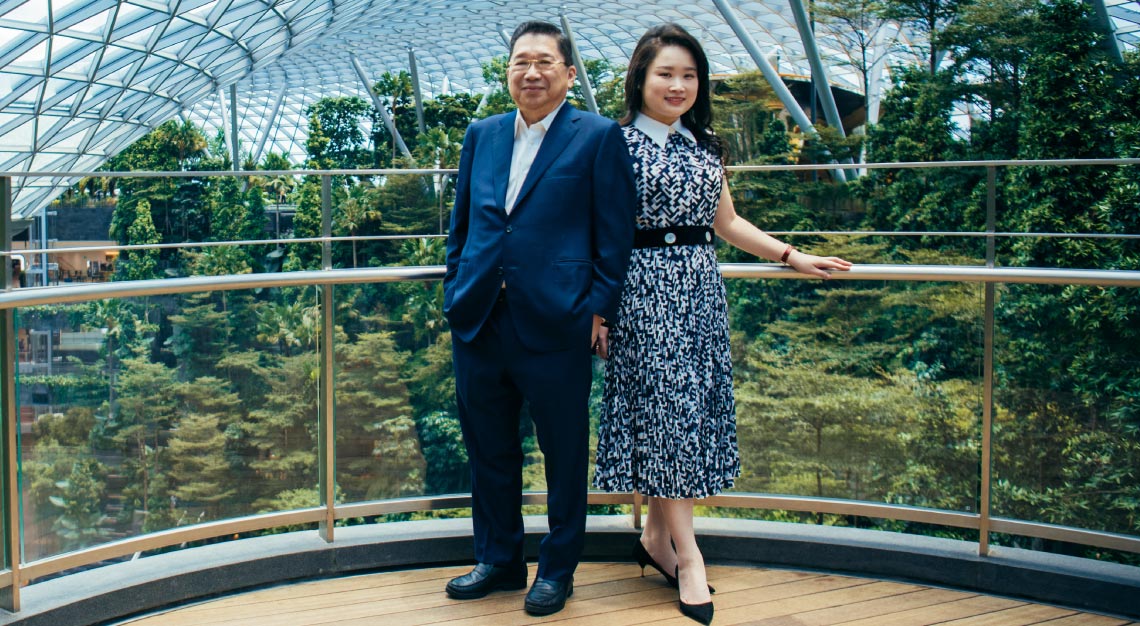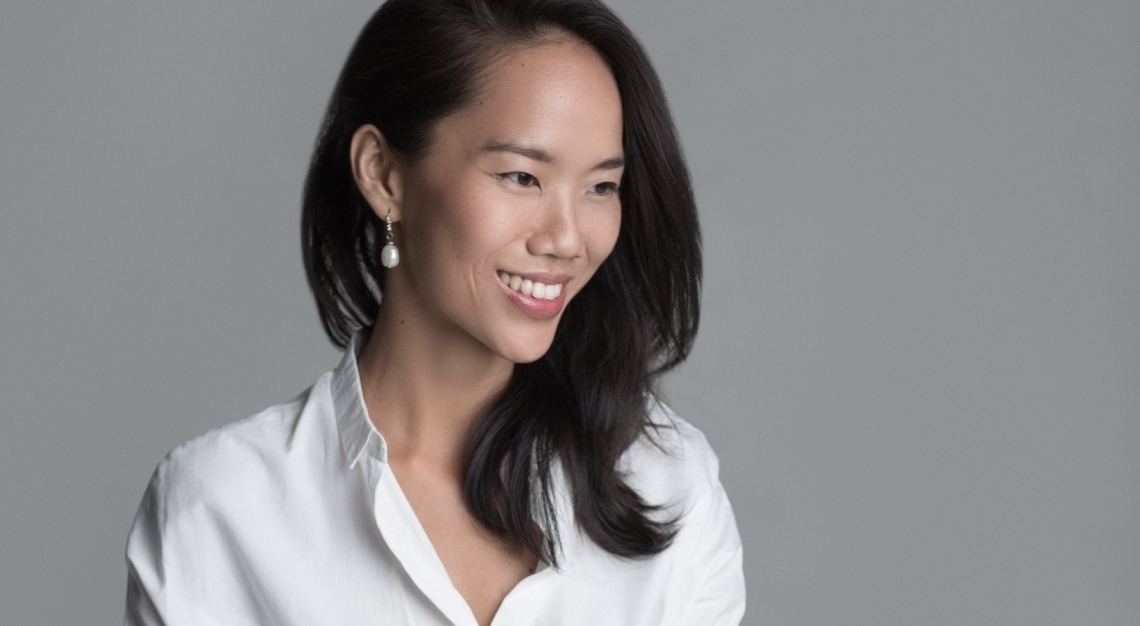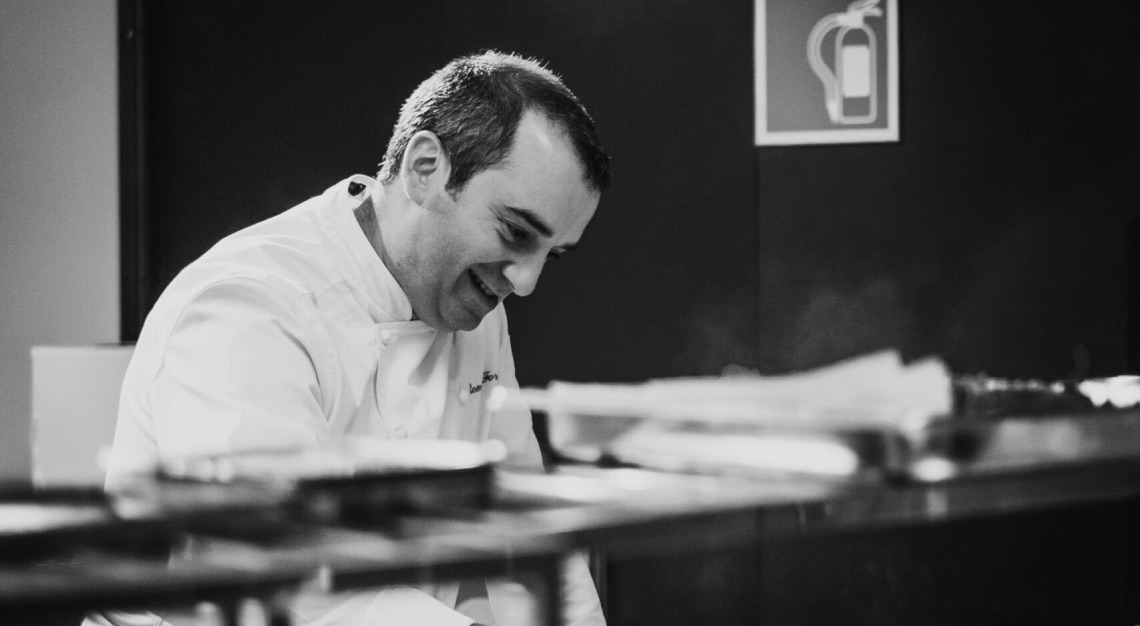The owner of Restaurant Ibid has never been in a more reflective state. In this conversation with Hannah Choo, he opens up about past mistakes, self-improvement and what it means to cook for people
The contenders are formidable. In every corner of Restaurant Ibid, people are feasting like there’s no tomorrow. The kitchen, fuelled by earnest young chefs, races to dish out the following: A5 Wagyu, marinated in sugar and carefully roasted in bursts; rolls of sweet, fatty veal face braised in a rich ‘Peking duck’ stock; and Cantonese steamed cake served with a tuile and ice cream made entirely from orange, skin and pith included. That’s just the tip of the iceberg, but these Singaporeans are doing what they do best – eat.
It is one of the restaurant’s ‘secret nights’ that occur about twice a month. These nights, featuring a different theme each time, are released as a special treat for its regulars (they get first dibs) and often sell out in a heartbeat. They come at a price of S$600 for a group of four, and at the additional cost of your waist. Some nights would see fish or glorified Chinese barbecue, but tonight, it’s all about steak. Lots and lots of steak.
“We do it because it’s something different, and I mean, who doesn’t want to run a steakhouse once in a while,” says Woo Wai Leong, as diners dig into kakigori, mounds of Japanese shaved ice topped with malted milk syrup, cranberry sauce, whipped cream and croissant bits. This would be their last leg of the night, provided their stomachs have the space. For them, tonight is another excuse to overindulge with their loved ones, but for Woo, it’s a fun way to break from routine. “The restaurant has been around for two and a half years, and I haven’t had a holiday since it opened. Every day has been just stemming the tide, and you can never clear your workload. But tonight gave us the chance to let our hair down. I don’t have to worry about critics, reviewers or secret diners. Whoever’s here comes from our list of trusted VIPs.”

If you don’t recognise his name already, Woo was the winner of MasterChef Asia in 2015. Before opening Restaurant Ibid in 2018, he’d spent three years dabbling in pop-ups, collaborations and bartending. This included two weeks of time with the infamous Marco Pierre White, whom he got a chance to smoke and argue with, which Woo describes as “nice”.
A lawyer by training (of course), he crossed over to the culinary world through sheer hard work and a genuine love of food. At Ibid, everything runs on a loose definition of ‘modern Chinese’. But it’s fusion done right, delicious and laden with big flavour, something he probably inherited from his late father. “If the food at home didn’t have enough flavour, he would kick up a big-man fuss,” he recalls. “My mum and I would spend time figuring out how to appease him because, you know, he was the man of the house.”
It doesn’t take that long to figure Woo out. Cooking makes him smile, or so I notice tonight. Maybe I’m here on a good day, but he’s definitely happiest during the rush of dinner service, slicing hunks of beef and assaulting squid tentacles with a kitchen torch. Once the adrenaline dies down, he’s back to this slightly grim, bespectacled 32-year-old, one who seems to take life a tad too seriously. A bit of a publicist’s nightmare, perhaps, but I guess it’s what makes him real and far removed from that typical synthetic coat of PR. While Woo could learn to loosen up a little, he is simply living the truth that some of us have been taught to deny. That life is a constant seesaw between success and failure, joy and pain – the stress can be paralysing, but you just have to learn to troubleshoot and calibrate. In a surprisingly frank conversation with him tonight, it feels like Woo has never been in a more reflective state.
Tonight was fun. Everyone was fed so well.
Usually, when people come in, it’s very prim and proper. But tonight, I wanted to go back to the days when a good meal means having to eat so much that you can’t eat anymore. It’s not because we want to prove a point. It’s more like, food isn’t that expensive.
Uh, food isn’t expensive?
We don’t mind being a bit more generous. The quality is still there, but it’s about being clever with it. If you have to trim, it goes to something else. Crab is the most ridiculous thing. It’s 30 per cent meat and everything else, shell. But you find a way to make the shells work for you. Turn them into stock or custard. That’s our job as professionals: to stretch the food so we can get the most bang for the buck.
Well, I really enjoyed the squid you served tonight.
Do you watch Food Wars on Netflix? It’s an anime that has grilled squid tentacles dressed in peanut butter. That’s the dish. It’s raised the idea of a secret menu featuring all the dishes from an anime. With how shitty 2020 has been, I think we could use different and a bit more… happiness.
Are you happy?
It’s a very hard question to answer at the moment. Running a restaurant, I’ve not been happy for a long time. After a while, passion just doesn’t sustain. There has to be other objectives in life.
What’s important in your life?
I don’t know. I mean, when I opened this restaurant, I realised I just had to do it. I had to get it out
of my system. Now that vision is real, what’s next? It started out as a business partnership, which didn’t work out after about seven months, and now that I’m 100 per cent owner, I feel everything that happens in this business. You’ll always be concerned about it, you’re protecting the restaurant from enemies, foreign and domestic. But it has its moments, too. Nights like these remind me why I do it in the first place.
There is joy and pain in everything.
It’s not the most important work on Earth. While we do add value to people’s lives, we’re not saving the world. I always tell my guys, don’t kill yourselves at work. At the end of the day, it’s just food. It’s very counterintuitive to a lot of chefs, but mental health in the workplace is very important. I just listened to a podcast between David Chang (Momofuku) and Corey Lee (Benu). They were saying how unhealthy the workplaces that we build for ourselves are. The whole alignment to the French hierarchical army system in the kitchen. The whole fear of being assessed by a single diner, and getting shut down because of one bad review.

Was there something you experienced growing up that’s shaped the way you think now?
Was there? I don’t know. For the longest time, I’ve been trying to extricate myself from the restaurant. I don’t want people to come here because it’s the ‘MasterChef restaurant’. I want people to come here because it’s Restaurant Ibid.
What does it mean for you to cook for people?
It’s why I have this restaurant. It’s a beautiful thing that people want to come and dine, and you are the person cooking for them. You are satisfying a basic but meaningful need for them. I don’t know if the seeking of affirmation is part of the job. Maybe in some way, it is, but nothing quite beats the rush of dinner service.
Do you ever feel torn between your lawyer past and your chef present?
I think the problem of having a backup plan is feeling you can always rely on the backup plan. A plan B can help you sleep better, but what’s the point? Do I want to go back to my old profession at this age and start again? The great question of our time is, how do we create an environment where people, who don’t have a safety net, can go out and take chances?
There must be someone who inspires you to carry on.
David Chang. I like that he’s frank. He’s quite open about his demons and how he wants to be better about them. He’s a self-deprecating individual who thinks he has a huge impostor syndrome, who has a lot to live up to. So he’s not the world’s greatest chef, but he’s definitely going to try. And in some way, he is successful because he’s given voice to a lot of the chefs within his team to have their own thing. Basically, I admire any chef who has taken his restaurant from restaurant to business, and then something more. It’s not to say that I crave to build an empire, but I crave to build a bigger thing than just a restaurant. I want to build a culture.
Is the culture here hollow?
I wouldn’t use the word ‘hollow’. Then again, I don’t hang with the chef circles anyway. Things happen, disagreements happen, and now I just don’t fit in. Anyway, I don’t believe there’s an industry standard for anything. I run my restaurant in my own way, I do right by my own values, and I do right by my team members. Make sure I can provide for them in the best manner that I can.

Since joining the food industry, what has it opened your eyes to?
That the industry is toxic. It’s really toxic. It seems like it’s full of big egos. Then again, I was a real a**hole a year ago. I was a very negative person to be around. The restaurant was close to closure; we weren’t making money and when we first started, we didn’t get the right idea. I was very wet behind the ears and when I look back, I’m like, what the f**k were we serving? In the end, a whole team left me, but I deserved it.
So you didn’t like yourself back then.
I didn’t like myself, so how could other people like me?
Was it then when you decided you needed to change?
No, at the time, I was just too angry at myself and everything around me. That’s quite likely what caused the rift between me and a lot of chefs whom I considered friends, colleagues and mentors back in the day. I would love to patch things up, but one can only apologise that much. It’s not my biggest concern anymore.
The following year has just been a year of growth, making more mistakes and learning from them, and now here we are. It’s still a work in progress, but I think it’s on an upward trend of getting better. Why can’t we have it better? Why can’t we build a safe space for chefs to work and cope and learn from each other? Not just grow as professionals, but as human beings?
At the end of the day, you have to figure out what it’s all for. What’s your ultimate goal?
True. Is the F&B industry the lot I have in life forever? Or am I looking at the wrong thing? I’ve now done my time as a restaurateur. Is there something else I can go into within the industry? But for now, my customers are happy. My team is happy and my guests want us to be well. What more can I ask for?
This story was first published in the November 2020 issue, which you may purchase as a hard or digital copy. Featured image by Studio Daydream
Restaurant Ibid
18 North Canal Road
Singapore 048830
Tel: +65 9151 8698






